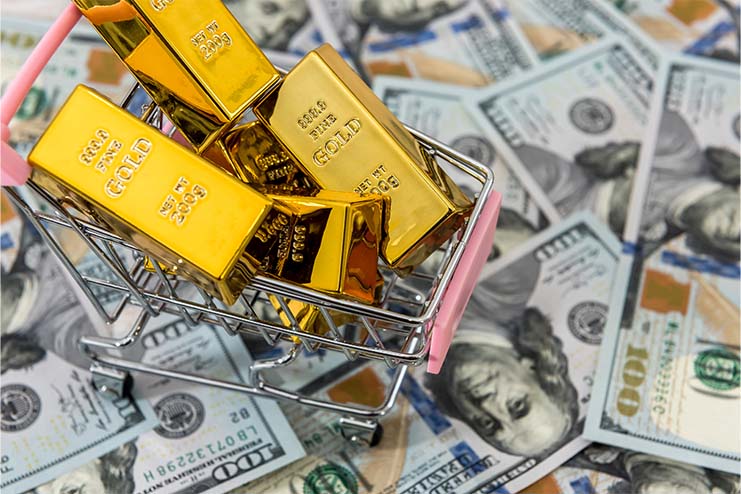What to Know About Investing in Gold and Silver
Precious metals have always had a unique allure, and history shows they have swung into and out of favor with investors many times. Their price surges in times of political upheaval or economic downturn, then drops when things look rosy.
So should you take the golden plunge? Here are some tips about investing in precious metals.
Investing in Gold and Silver as Insurance
“See this paper money? In 100 years, it’ll be long gone.” If you watch late-night TV, you may have seen the commercials urging you to buy gold today against a time when dollars and other paper currency will become worthless.
Owning precious metals is considered by some to be an insurance policy, in case everything else you rely on fails. Some buyers liken investing in gold and silver to buying homeowner’s insurance – good to have in case the house burns down.
Gold as Inflation Hedge
Gold, and to a lesser extent, silver are also viewed as hedges against inflation and deflation. Some financial experts believe that gold belongs in everyone’s portfolio to some extent.
One such is Andrew Carrillo, a financial planner with Barnett Capital Advisors in Miami. Carrillo is quoted in AARP’s article, “Should You Buy Gold?” as saying that he keeps fully 50 percent of his own investment assets in gold. He tells his retiree clients to hold at least 5 to 15 percent of their portfolio in gold.
“Their biggest risk is not running out of money,” he says. “The biggest risk is their money running out of purchasing power.”
Gold and Silver Do Not Produce Income
Others argue against holding gold and silver in your portfolio, however, primarily because precious metals do not produce income. Many investors, especially those approaching retirement, seek investments that generate income. They believe they are better off with high-quality bonds, dividend-paying stocks or real estate investment trusts that pay out most of their earnings in dividends. Stocks usually appreciate over time and more than keep up with inflation.
Even super-investor Warren Buffett argues against keeping precious metals in your portfolio. He noted in a letter to his shareholders that all the gold in the world would form a cube 68 feet in diameter and be valued at about the same price as all the farmland in America. But in 100 years, the 68-foot cube would still be just a cube, incapable of creating anything, while the farmlands would have yielded enormous amounts of edible crops.
Taxes and Price Drops
Taxes are another downside of owning precious metals. Gold is considered a collectible, so sale profits are taxed at 28 percent. Stock sale profits are taxed at a top rate of 20 percent.
And the hard truth is that gold prices can fall staggeringly fast. In 2001, for example, gold sunk to just a little over $400 in price. Silver is cheaper than gold, but historically even more volatile.
Bullion or Rare Coins
If you are still sold on gold and silver as a way to protect your assets from inflation and financial upset, what should you buy?
According to Stefan Gleason, president of Money Metals Exchange in Eagle, Idaho, you’ll want to go for the bullion coins and bars. “You want to avoid gold collectibles or rare coin products. Instead, buy bullion valued on its melt weight,” Gleason advises. He says that numismatics — collectible precious metal pieces — are for speculators and hobbyists.
Gold-Backed, Crypto Stablecoins
The newest, flashiest, and most controversial financial technology today is cryptocurrency. Cryptocurrencies have a non-volatile category known as stablecoins. Stablecoins have their values backed by, and pegged to, an already existing asset or currency—such as the U.S. dollar.
Gold-backed stablecoins, such as PAX Gold, always have their value tied to the price of a single gold bar. PAX also keep the physical supply of gold bars in reserve, and can provide the correspondingly backed bar code ID to anyone who owns more than a fractional piece of the digital currency.
What’s Next?
With inflation skyrocketing this past year, precious metals are worth exploring. Whether you buy bullion, coins, or crypto is really a decision based on your personal circumstances and preferences.
Quicken has made the material on this blog available for informational purposes only. Use of this website constitutes agreement to our Terms of Use and Privacy Policy. Quicken does not offer advisory or brokerage services, does not recommend the purchase or sale of any particular securities or other investments, and does not offer tax advice. For any such advice, please consult a professional.



